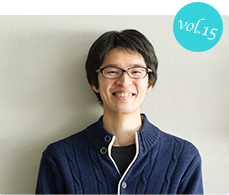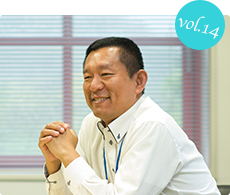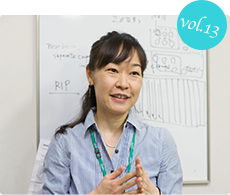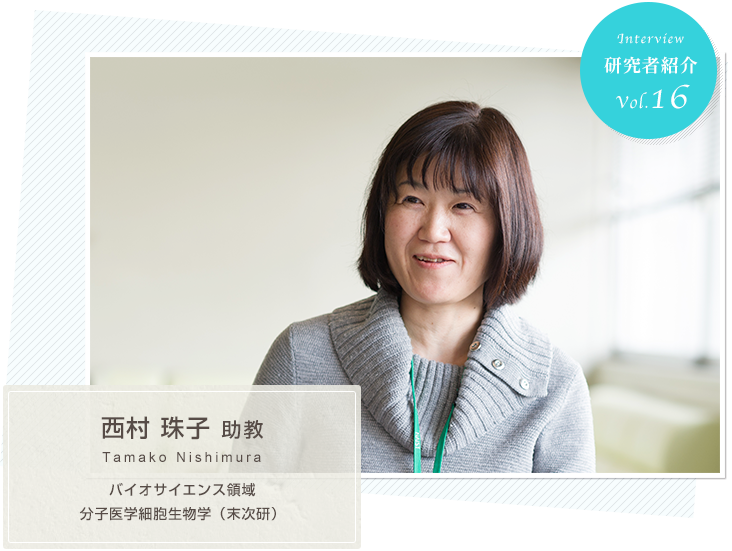
![]()
Graduated from the Faculty of Pharmaceutical Sciences, Kyoto University, and after working for a pharmaceutical company, completed the Ph.D. program at the Graduate School of Natural Science and Technology, Kobe University. Ph.D. in science. She specializes in cell biology and developmental biology. Her current research focuses on the mechanisms of lipid membrane deformation by BAR proteins and their functions in cells.
Path to becoming a researcher
I have loved science since high school, but when it came time to go to college, my parents recommended that I go to the Faculty of Pharmaceutical Sciences because they thought it would give me a good chance to work with my hands. At the university, I enjoyed my biology classes. I was assigned to a lab that studied biochemistry and cell biology, and I enjoyed doing experiments until midnight. I got my pharmacist's license, but I had no intention of becoming a pharmacist and wanted to do research in a pharmaceutical company after my master's degree. However, my parents strongly opposed me, saying, "If you go to graduate school, you will never be able to get married," so I graduated in tears and went to work for a pharmaceutical company. At the pharmaceutical company, I was assigned to a research institute where I worked on various enzyme and cell systems and was involved in research to find drug seeds from natural products such as microorganisms and plants. I enjoyed this work. Later, I was transferred to the headquarters, but since I was still not satisfied with my research, I decided to leave the company and go to graduate school. I got married while I was still at the company, so my parents did not complain. In graduate school, I worked on research related to intracellular organelles called centrosomes. I spent many hours looking through a microscope, but it was almost painless because I loved looking at the beautiful stained images of cells.
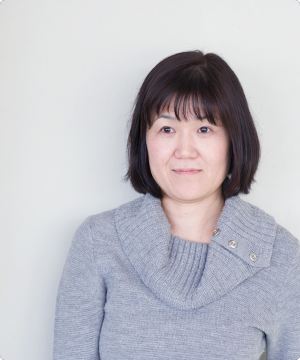
After receiving my Ph.D., I became a researcher at RIKEN in Kobe. I joined the laboratory of Dr. Masatoshi Takeichi at the Research Center for Multicellular System Formation, where I studied how epithelial cells deform intercellular adhesions to form tissues. I learned a lot by staining cells and tissues, observing them closely, and discussing various hypotheses with the professor while looking through the microscope. It was also good that we were able to try out different techniques in a free atmosphere. I was helped by the excellent people in the laboratory and the research institute, and I was able to obtain research results that made my research life very valuable.
After that, I became an assistant professor in the same laboratory where I was enrolled in the Ph.D. program, and my child was born around that time. I returned to RIKEN and worked as a researcher in the JSPS RPD before coming to Tohoku University. Currently, I am working on the mechanism of cell membrane deformation. I am grateful to be able to continue my research on the regulation of cell shape.
There have been many twists and turns, but I have been fortunate to be able to enjoy my research, which I believe is the reason I am still able to continue as a researcher.
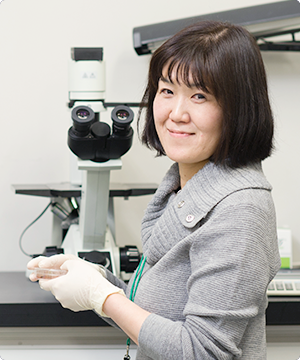
Daily schedule
I have been a morning person since high school, so I get up around 4:30 in the morning and do some writing. My mind is clear in the morning and sometimes I come up with good ideas. Then I make dinner around 5:45 and put it in the fridge. Then I wake up the kids, feed them breakfast, leave the house around 7:20, and go to work at the university around 9:00. It is a long commute from home to the university, so I plan experiments and read and write papers on the train. During the day, I supervise student research and conduct my own experiments, and I leave the university around 6:30 pm. When my children come home, I ask them to call me, and I get home a little after 8:00. Then I heat up dinner and eat it with them. After helping them with their homework and getting them ready for tomorrow, I go to bed around 10:30 to 11:00 p.m.
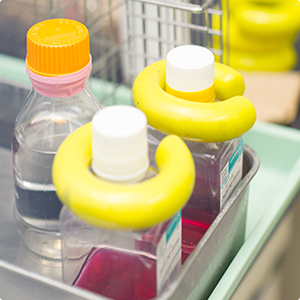
I share the household chores with my husband. For example, I cook the meals and my husband does the cleaning. I feel that mothers have more work to do, even if they cannot see it. However, I think the other person feels the same way, that she is responsible for the invisible chores, so maybe it is a mutual thing. It helps that I can take my kids out to play.
On Saturdays I do experiments at the university from about 11 am. I often find myself looking through a microscope. My children are left to my husband, who takes them to the swimming pool and other classes. On Sundays, I spend time at home with my family, planning the week's menu and shopping.
Support for researchers needed at NAIST
I commute from Kobe, where I live. When I first arrived at the university, my child was attending a daycare center and I was unable to pick her up before the pickup time, so I was able to use the subsidy (provided by the Cabinet Office) for the use of babysitter fees to take her to and from the daycare center and home in the evenings on weekdays and to take care of her after she returned home. We were very grateful to the Office of Gender Equality for advising us on which babysitting company to use, etc. We have been using this program for about a year and it has been very helpful.
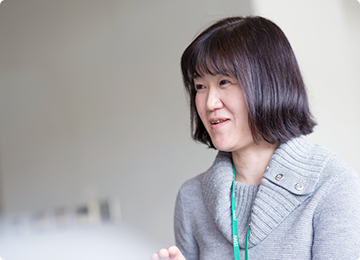
My child started elementary school in April of this school year, but I still can't make it in time to pick him up from the school daycare center in the evening. The public school daycare centers do not provide transportation for children, close when there is a weather warning, and have reduced hours during summer vacation, which makes it very difficult to work. So I joined a private childcare center that provides transportation between school and my home, childcare during long holidays, and also responds to weather warnings and school closings. However, it is very expensive. It may be difficult because each family has its own circumstances, but I would be grateful if there were some financial support for using the day care after entering elementary school.
For students who want to become researchers
I think our university has an environment conducive to research, and support for researchers is very generous. Various common equipment is maintained in perfect condition, and there are many excellent professors, so I think it is very easy to do research. I hope that students will take advantage of this wonderful environment and do their research to the fullest. Getting a job is also important, but I want them to experiment to their heart's content. Research becomes very enjoyable when new discoveries are made, so I hope you will experiment and observe often and discover new facts. I also hope that you will not only do what you are told, but also do your own research and make suggestions to the faculty about what you would like to try next. We want to support them.
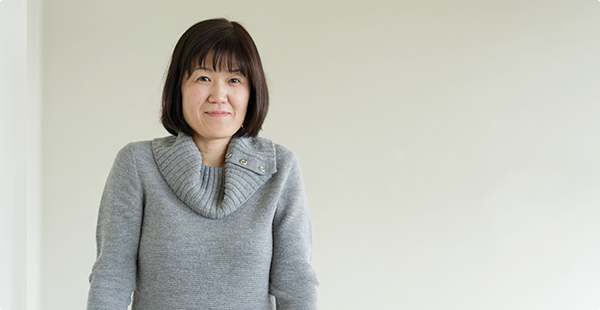
(March, 2019)

-
2019.3 updated
Division of Biological Science
-
2018.6 updated
Division of Information Science
-
2018.6 updated
Division of Biological Science






